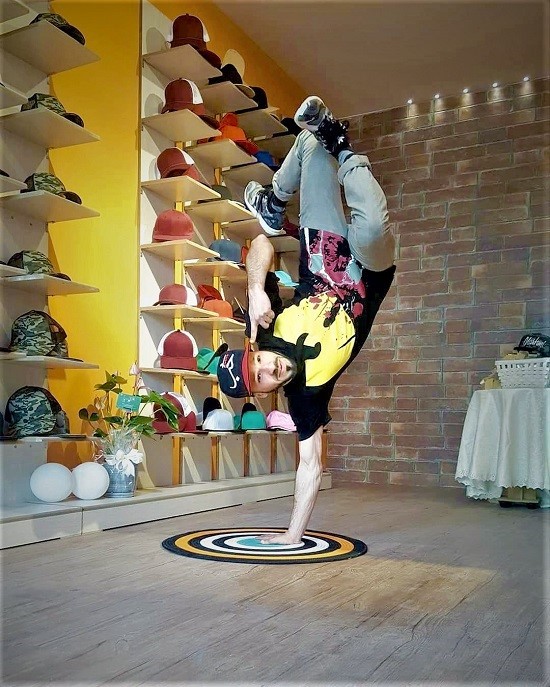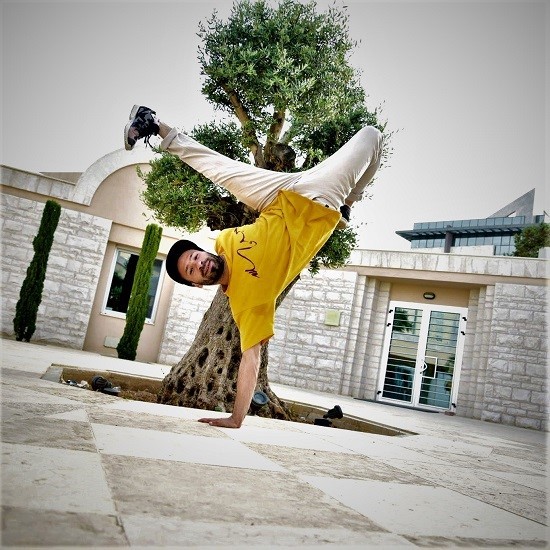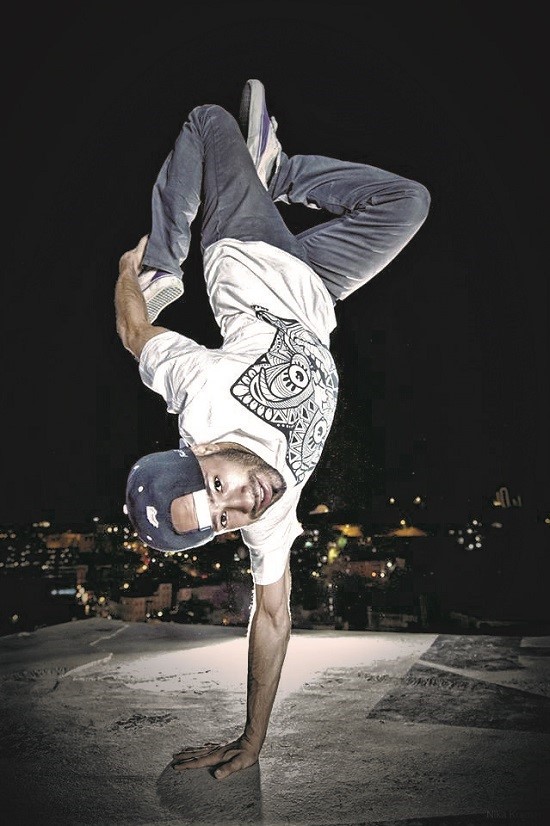Alaeddin Rahmeh had a difficult childhood growing up in
Jabal Al-Nuzha: “I grew up surrounded by violence and lack of education.”
اضافة اعلان
Yet, despite not having access to the best education, he
overcame his limits and graduated with a degree in engineering.
His roots are Palestinian, from the port of Jaffa, and his
dream is to one day go sea fishing. “My family always tells me beautiful things
about my city. I am very proud of my origins, and of the 32 years I have been
living in Jordan,” Rahmeh told
Jordan News in an interview.
At the age of 14, Rahmeh saw dancers on the TV news channel:
“It was 2004, and they were screening a hip-hop concert in New York, followed
by kids spinning on their heads. It was crazy. It was pure magic.”

In those days without Internet access, the concert opened up
a new world for Rahmeh.
“Dance in our culture has been seen as something negative
and has been sexualized,” said Rahmeh.
But things have changed and he became a breakdancer himself.
“I remember we started practicing every day for six hours.
We came from different parts of Jordan to dance together in Shmeisani,” and he
began to discover the positive impact dance had on his life.
“It was a healthy lifestyle with lots of training,” said
Rahmeh, who began to break down the barriers he had grown up with, discovering
dance as a way of life and human expression.
 (Photo: Handouts from Alaeddin Rahmeh)
(Photo: Handouts from Alaeddin Rahmeh)
“I grew up judging dance and seeing it purely as a
sexualized image, and believing it was just typical belly dancing. It was up to
me to learn and experience firsthand what dance exists for,” he said.
Breakdancing started to broaden his world, exposing him to
diverse cultures and pushing him to learn.
“During my education, I had many limitations, and it was
because I kept wanting to learn about the dance culture that I decided to learn
English, and I did it on my own,” he said.
He believes that by entering the world of dance he became “a
better human”.
“It is amazing what you achieve by dancing. I used to be
violent, and I have changed. Everything bad and sad in life is suspended, you
forget the problems, and there is only the here and the now,” said Rahmeh.
“You focus and listen to the beats, and the body begins to
respond. Breakdancing has healed me a lot,” he said.
Over 16 years, Rahmeh dedicated himself to consolidating the
breakdancing scene in Jordan, which has seen the inclusion of women.
“In 2009, we were preparing for what would be our first big
competition; we learned a lot in the workshop that Lilou (Algerian-French
breakdancer, the winner of the b-boy competition
Red Bull BC One in 2005 and
2009) gave us, helping us to reach a professional level,” said Rahmeh.
From 2009 to 2014, the breakdancing scene was on fire;
national-level competitions, such as Red Bull Bc One, Jordan Hip-Hop fusion,
King of the Ring, broke through to international leagues such as Underground
Funky Base in Turkey and Dubai UK B- Boy Championships qualifier.
The stage also grew with its exponents who were crossing the
20-year age gap. Some went on to pursue dance outside Jordan, others dumped it,
but for Rahmeh, it would evolve to become an essential part of his existence.
“Life is not easy, and everyone at some point is looking for
stability. I do not make a living from this, but it is something that makes me
feel alive,” he said.
After five glorious years, breakdancing suffered a decline
in 2014.
“It was time to reinvent what we were doing. Most people
left the scene, but this is when something interesting emerged. A younger
generation came in to continue what we had sown,” said Rahmeh, who had to face
the challenge of reshaping breakdancing in Amman.
 (Photo: Handouts from Alaeddin Rahmeh)
(Photo: Handouts from Alaeddin Rahmeh)
This dancer’s path has not been easy, primarily due to the
lack of acceptance by the society.
“It is very easy to be judged,” said this artist who did not
let fear limit him, but worked to explain “that it is a sport and it is
healthy, it is not a bad thing, on the contrary, it takes a lot of work”.
Now he is working on a new project, Underground Amman, as
well as on a beautiful initiative with the
Jordan National Gallery of Fine Arts
called Zajal, which includes elements of Hip hop, dance, and improvisation
sessions.
He hopes that Jordanians will start to accept different
forms of expression. He also stresses the importance of art, which helps
children blossom.
“Life in East Amman can be hard, especially for children,
and art helps a lot with mental health,” he said.
As for him, “the present is the greatest gift in life, and
when I dance, feeling the music and expressing it with my body, I feel
infinite”.
Read more Trending





